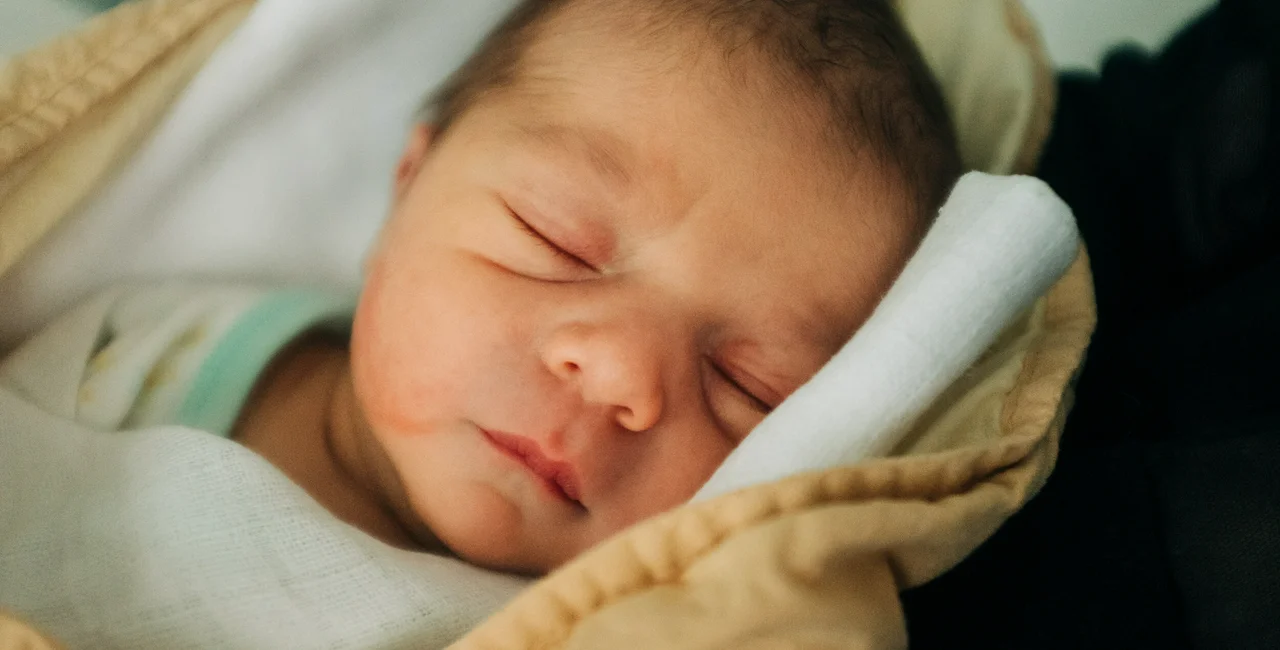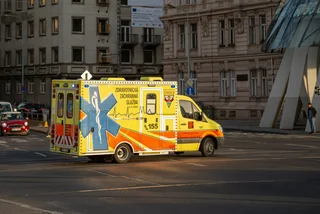On March 12, 2020, the Czech government adopted crisis measures prohibiting entry to the Czech Republic and travel to high-risk countries. These resolutions and further limitations on travel had a profound effect on foreigners living in the Czech Republic, preventing study, complicating long-distance relationships, and creating particular challenges for expats giving birth abroad.
In March, the Czech government also banned the presence of a companion (parent, doula, family member, or midwife) during labor. In addition to fears of contracting Covid while pregnant – which experts say can lead to preterm birth – many women were left to face important pregnancy appointments and labor alone. For foreigners who don’t speak Czech, the circumstances led to increased psychological stress before, during, and after pregnancy.
PARTNER ARTICLE
“In general fewer expectant parents took part in pre-natal classes and one-time prenatal appointments in the hospital due to government-imposed lockdown restrictions,” said Miloslava Kramná, coordinator of Aperio's Maternity Hospital Guide.
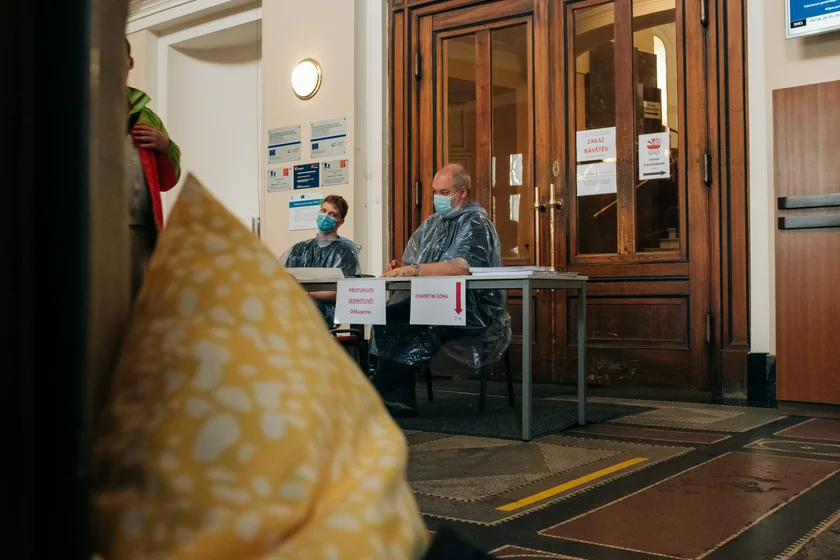
Additional data shows that outpatient birth (leaving the hospital less than 72 hours after birth) was experienced by 13% of women, a 5% more than in 2019, and a further increase occurred in 2021. “More families are spending the postpartum period in their homes due to the pandemic and a limited number of hospital visits,” said Kramná.
While the wider impact of giving birth under such restrictions isn’t yet known, we spoke to three women, foreigners living in Prague who delivered in a Czech hospital at the height of the outbreak.
Here, their stories of surviving adverse conditions to deliver healthy babies, now celebrating their first year of life.
These stories have been condensed for length and clarity.
"It was an extremely traumatic experience"
Chelsea Phillips gave birth at Prague, Podoli, May 2020
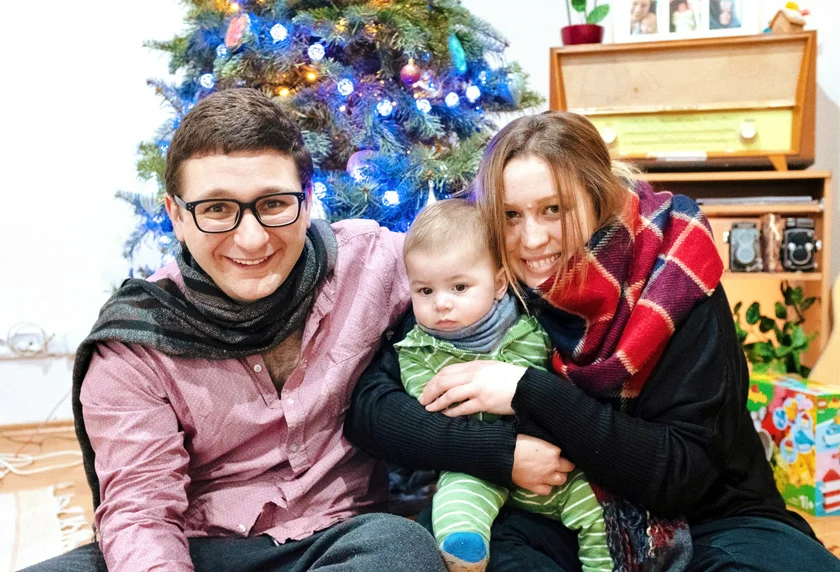
As a person with anxiety issues who likes to be hyper-prepared for even the littlest errand, not knowing was the biggest source of stress. The rules about partners being allowed at birth were changing day by day. The rules of my primary prenatal doctor were different for every one of my appointments. I already felt isolated and overwhelmed as a first-time parent and foreigner giving birth in a country where my grasp of the language is very low, and I have no family and few friends to rely on.
No in-person prenatal classes were being offered because of Covid. I wasn't even allowed to visit the hospital where I was due to give birth, because of restrictions.
Luckily my husband was allowed to be present at the actual birth, but he had to leave immediately afterward, and he was not allowed to visit at any point during my stay. This was probably the hardest part of the entire pregnancy.
My delivery was not exactly smooth and being alone, not allowed to leave the hallway where my room was, and unable to communicate with the vast majority of people around me was an extremely traumatic experience.
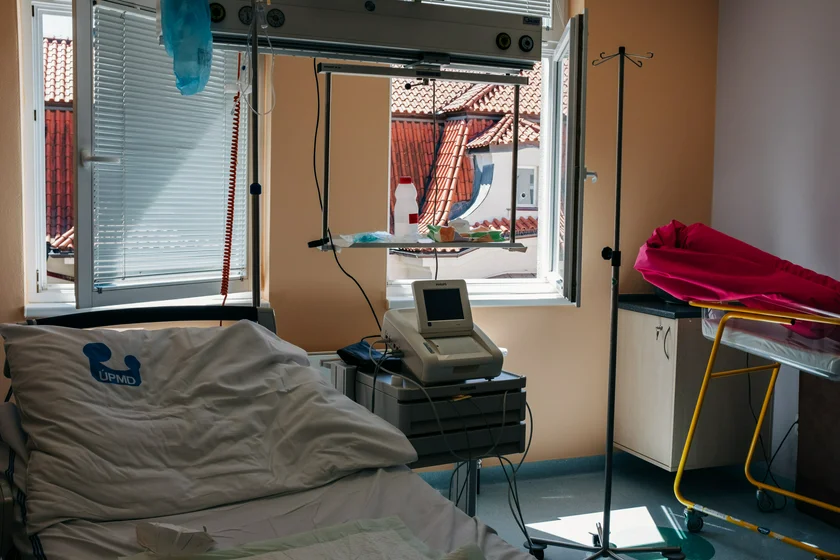
At one point, I had to be rushed to the hospital in an ambulance, and even the EMTs didn't know where to take me. We sat in the ambulance in front of my apartment for nearly 30 minutes as they called around to find somewhere safe for me to be treated. When I finally found myself at a hospital, I was in an isolated hallway with long-term patients, as they didn’t want me in any ward where Covid may be prevalent.
There were minor inconveniences like wearing a mask during appointments, and there were some appointments where my husband was not allowed to attend. None of this seemed like a big deal to me, and I appreciated the caution my health care providers were taking. There just was never anyone who I could turn to for real answers, as no one knew what the next day would look like.
"I started getting panic attacks for the first time."
Olha Zhabska gave birth at Neratovice, January 2021
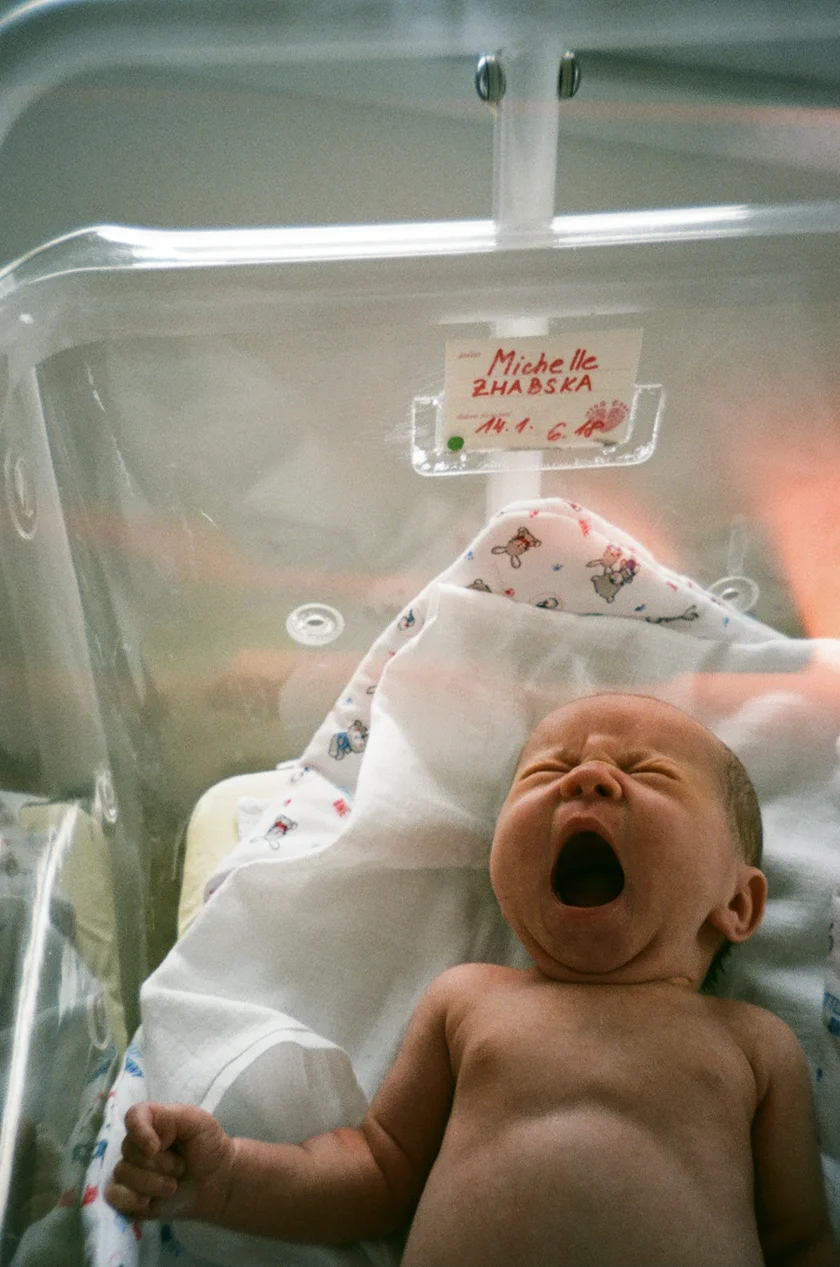
My pregnancy took place across 4 countries: Indonesia, Ukraine, Montenegro, and the Czech Republic. Surprisingly, there were no problems with movement and travel.
I was afraid that I would have to give birth in a mask and that my husband would not be allowed to accompany me. This started giving me panic attacks for the first time.
I spent 4 days in the hospital and felt incredibly lonely. I saw my husband time after time only through the glass door. I am a vegetarian, and even though there was vegetarian food in the hospital, it was really terrible. It was mainly white bread, margarine, and similar things. So my husband traveled by train with a transfer every day to bring me my regular food.
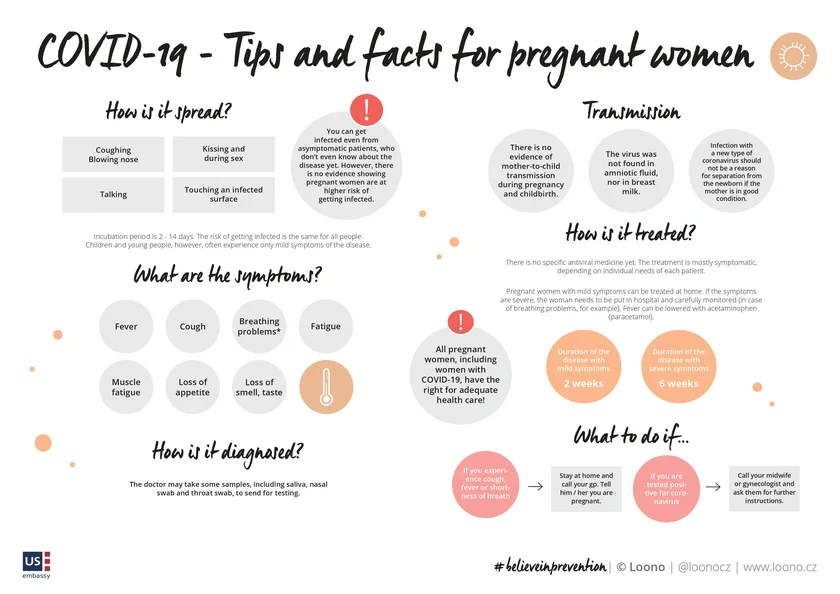
In the hospital, they didn’t want to allow my husband to accompany me, but we appealed that I didn't understand Czech at all and wouldn't understand what they were telling me. So for this reason only, he was allowed into the second stage of labor. Of course, I was happy about it.
Also, I am very sad that it wasn't possible to give birth with my doula. I missed her terribly during childbirth. I believe that a woman needs the support of another woman in childbirth, who is 100% on her side.
“My husband wasn’t there when I learned the baby's gender”
Kate King Davis gave birth at Prague, Krč in May 2021
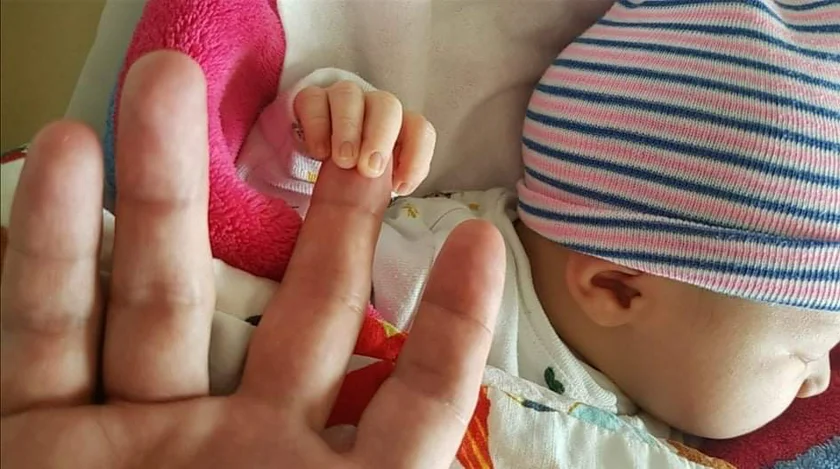
When I realized I was pregnant the city was still open, and businesses were operating. I quickly became nervous because October is when the Covid cases and fatalities started to rise dramatically. My biggest concern being pregnant during the pandemic was catching Сovid. I had read that it could lead to complications and premature births, so I was fearful for the baby's health.
Another minor challenge was that all the shops were closed. I really struggled to buy maternity clothes and nursing bras. The shops finally opened when I was 8 months pregnant, but it seemed pointless to buy maternity clothes at that point.
Fortunately, my husband could attend our first ultrasound, but then in mid-October, we entered another lockdown, and that's when everything changed.
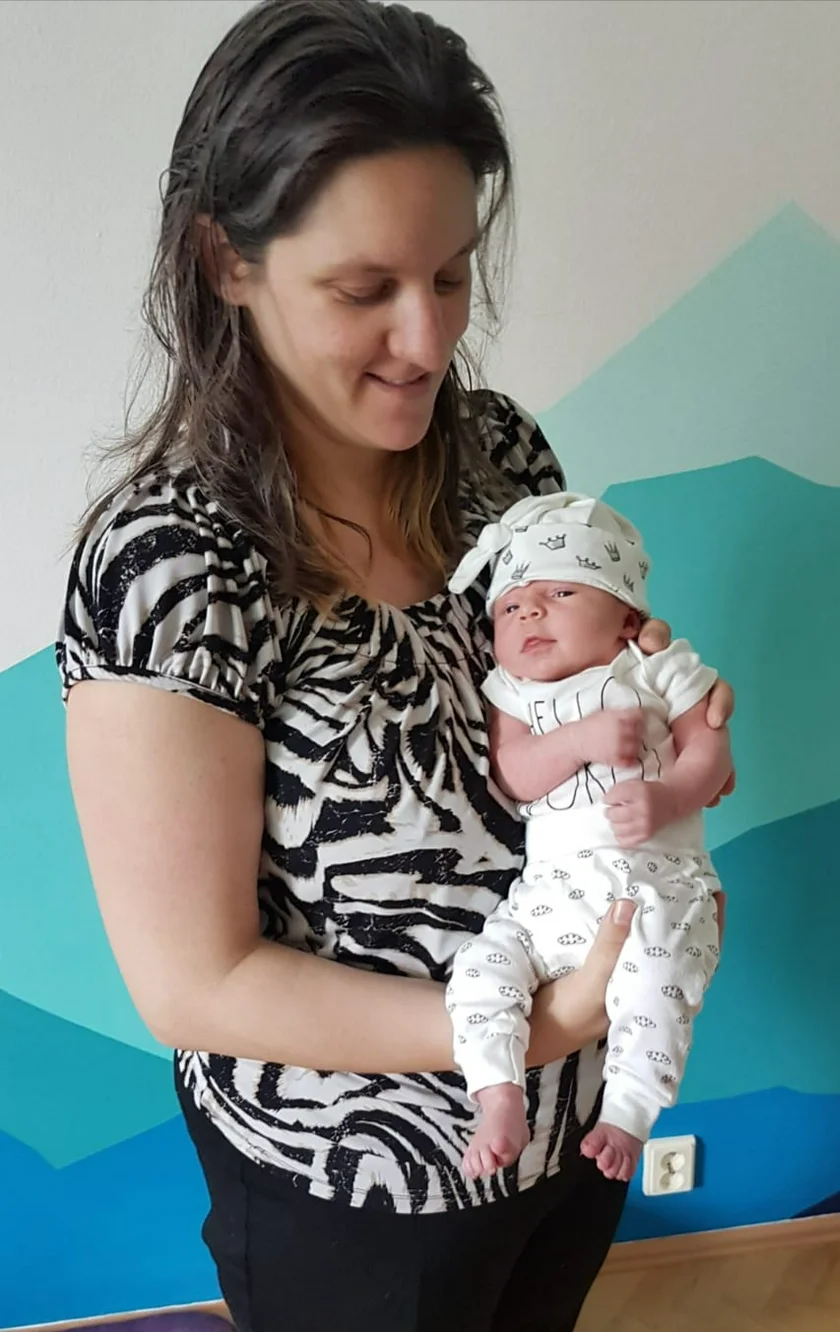
For me, the most challenging part of being pregnant during the lockdowns was going to all the prenatal appointments alone. Unfortunately, my husband couldn't be there during the ultrasounds when I learned the baby's gender or to see her growing through the pregnancy.
At my last prenatal appointment, they decided to start induction that day. My husband had to bring my suitcase to the hospital, but he wasn't allowed to see me because of the restrictions. He had to drop off my suitcase, and a nurse brought it to me. It was very sad for me, I could have used a hug.
I was grateful he could be present for the active labor and childbirth, but he was asked to leave two hours after the birth. Due to his working hours, he only saw his daughter for another 90 minutes those first four days. As a new mother, I struggled the first couple of days to balance my needs and the baby's needs. The hospital staff was supportive and kind, but I just wanted my partner there.
Giving birth in the Czech Republic in 2021
- The Ministry of Health of the Czech Republic and the Czech Gynecological and Obstetric Society have determined that pregnant and lactating women can be safely vaccinated with the Covid-19 vaccine.
- The ministry recommends vaccination after the 12th week. If pregnancy is detected after the first dose of the Covid-19 vaccine, the second dose should not be given until the 12th week of pregnancy. Vaccination is also possible immediately after delivery.
- Currently, the presence of a third person (the child's second parent, doula, or other support) is allowed during labor if it takes place in a separate delivery room or contained area under the required hygiene conditions.
- The rules regarding hospital visits are constantly changing due to the surge in cases. Under the current restrictions, hospital visits are allowed with restrictions. See the Czech govt.'s guidelines for pregnancy and childbirth here.
- Local parent Kate King Davis said expat-friendly baby groups on Facebook like Bumps, Babies, and Tots - Prague, Breastfeeding Support Prague, and Babywearing Prague offered a vital lifeline. “I have been overwhelmed with the kindness and generosity of mothers in these groups. Their help and support have been invaluable, especially being so far from family.
Chelsea Phillips, one of the women mentioned in this article is a Prague-based photographer who documented her May 2020 maternity stay at Prague's Podolí hospital in a moving photo essay. You can view her complete photo set "Life in the time of corona" at Clondon.me/blog/birth.












 Reading time: 6 minutes
Reading time: 6 minutes 